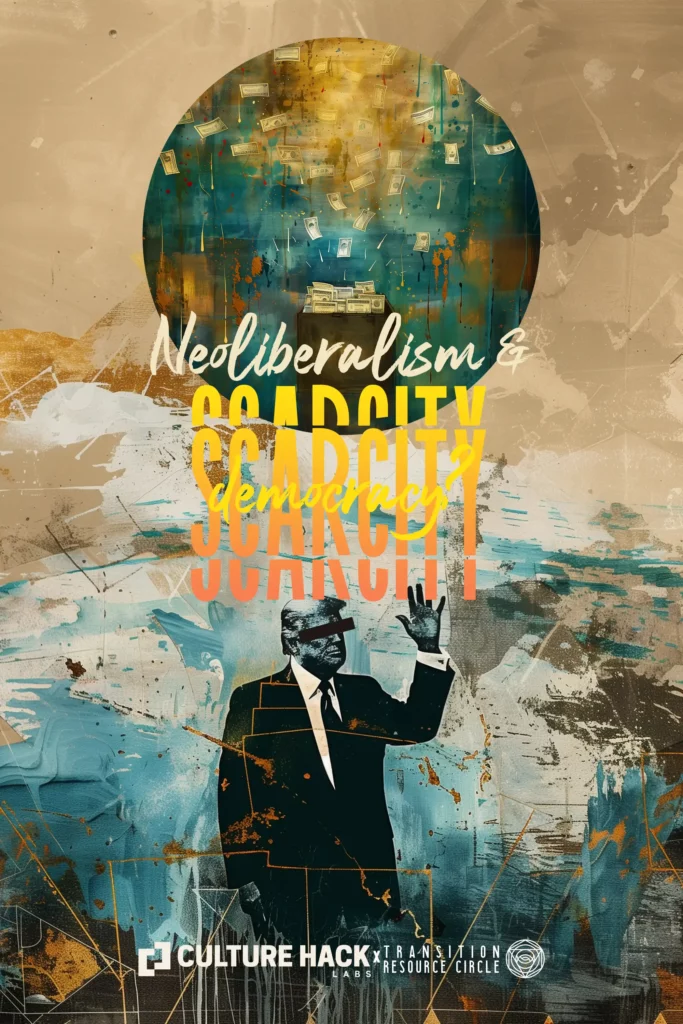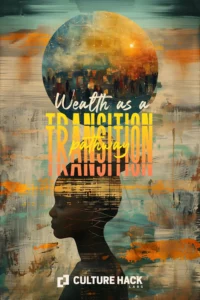Neoliberalism & Scarcity: Are capitalism and democracy at odds with each other?
In this pithy essay, philanthropic elder Colin Greer explores the psychological and historical factors influencing human behavior and societal structures on democratic governance. It warns against the rise of authoritarian ideologies worldwide, questioning democracy’s ability to address contemporary challenges amidst this trend.

The global democratic experiment of the last 100 years is almost everywhere caught in a polarized clash of worldview with ethno-nationalism and a massive scramble for control of global and national wealth by oligarchs in and outside political office.
In the decades after World War II debt became an international instrument of exchange and control as nations emerged out of decolonization. After the Cold War, austerity became the twin of debt in its impoverishing impact on working-class peoples worldwide. Massive, rising inequality is a global fact of life fracturing the possibilities for the just distribution of resources and the peaceful application of our capacity for cooperation and altruism.
The blame and shame game that now flourishes and casts a veil on these embedded systems derives from immediate and historical conditions but also from deep in our human wiring and transhistorical socialization as suggested here. Below, is a short exploration of what we know to inquire what we can do about growing scarcity logics.
1. The Psychology of the Scarcity Experience
Humans across all evolutionary forms have faced scarcity—from the impact of weather on the food supply to competition with nonhuman animals for food and shelter.
The experience of material scarcity of this scale generated an individual psychological dynamic and societal reflex of fear and loss. The perennial uncertainty of survival was also magnified by interhuman aggression, conflict, and hierarchy.
2. Historical and Transhistorical Trauma
What we call trauma—emergency response, risk, and loss—follows and has a multigenerational impact on individuals, families, social groups, and nations that is carried into all lives through the imposition of extreme fight-or-flight-response-triggered behaviors.
These dynamics inform the tendency in humans to impose a “scarcity experience” on nonmaterial scarcity situations. The scarcity experience has permeated across history into our institutions, conventions, expectations, and beliefs.
3. Variety Within the Human Population
Add to the uneven distribution of inherited trauma (and social responses to the scarcity experience) the genetic differences of human populations, which are combinations of distinct groups of human ancestors, and we can be sure that just as there are demonstrated physical markers of difference among populations with regard to biological systems, there are also key behavioral markers.
Understanding these behavioral markers may help unpack the crisis of legitimacy facing democratic nations in which extreme partisanship regarding values and politics has produced culture wars. Legitimacy and illegitimacy are essentially about the conflict between bonding nests of insular common sense, fear, blame, belief, and expectation.
4. The Uneven ‘Fight-or-Flight’ Response
These traumatic experiences have been unevenly distributed over populations and individuals over time and geography. This might be a part of the explanation for the fight-or-flight polarity of behaviors seen in the human population in response to fear, risk, and danger. The responses can produce a wide range of social environments, from calm and cooperative to conflictual and antagonistic.
5. Negative/Positive Human Bonding
“Good enough” bonding is key to cooperative and considerate social relations, and an overall society based on goodwill.
We know that when life is uncertain—when birthing and infancy are high-risk and death is so common that the naming of children was often delayed—blame for loss is rampant, and, as a result, multiple complex patterns of bonding fractures replace bonding with longing (selfishness, greed, violence, blame, hoarding) in likely individual and group behavior.
All this is processed through personal and cultural temperaments, and so a fairly wide range of action, values, and empathy exists and can be exaggerated in one or another direction—a sense of kin, widely or narrowly shared.
6. The Uneven History of Human Collaboration
There is widespread evidence stretching over centuries in different parts of the planet of goodwill and visions of shared well-being, of cooperative discourse and reparative ideals that might be called on with new vigor. These have long aimed to counter the dominance of extreme fight-or-flight/scarcity panic psychology, blaming and maiming communication and political engagement in the long and ongoing story of human society.
Making Use of It
Perhaps this perspective on scarcity and bonding can help us see ourselves differently and find our way.
Currently, we are witnessing the failure of the historic progressive agenda and a dramatic decline in the legitimacy of democracy as a governing ideal.
At the same time, the Right-wing has, for over 50 years, rooted itself in key political positions and popularized regressive ideas and ideals through coercion, shaming, and exclusivity.
The power of the Right is based on having gained the trust of people. As the public has lost its sense of higher purpose, the progressive agenda has become delegitimized. Ironically, rich people are lionized by working people—despite the damage to their own lives because wealth stands for strength and prospect.
The damaging philosophy of neoliberalism has morphed into something more sinister. We are witnessing the capture of the public sphere by dangerous politicians promoting destructive ideologies often built on lies and disinformation. These ideologies have led to a worldwide spread of authoritarianism, which some argue is a zeitgeist more capable than democracy for handling economic, environmental, and social crises. How do we shape a democratic future living in a zeitgeist that is tightening its grip across the globe?
++++++++++++++++++++
Colin Greer is the president of the New World Foundation. He was formerly a CUNY professor, a founding editor of Social Policy magazine, a contributing editor at Parade magazine for almost 20 years, and the author and coauthor of several books on public policy. He is the author of three books of poetry, including most recently Defeat/No Surrender.
++++++++++++++++++
A version of this article was commissioned by Human Bridges, a project of the Independent Media Institute and re-printed by LA Progressive. It can be found here: https://www.laprogressive.com/progressive-issues/interest-in-democracy
